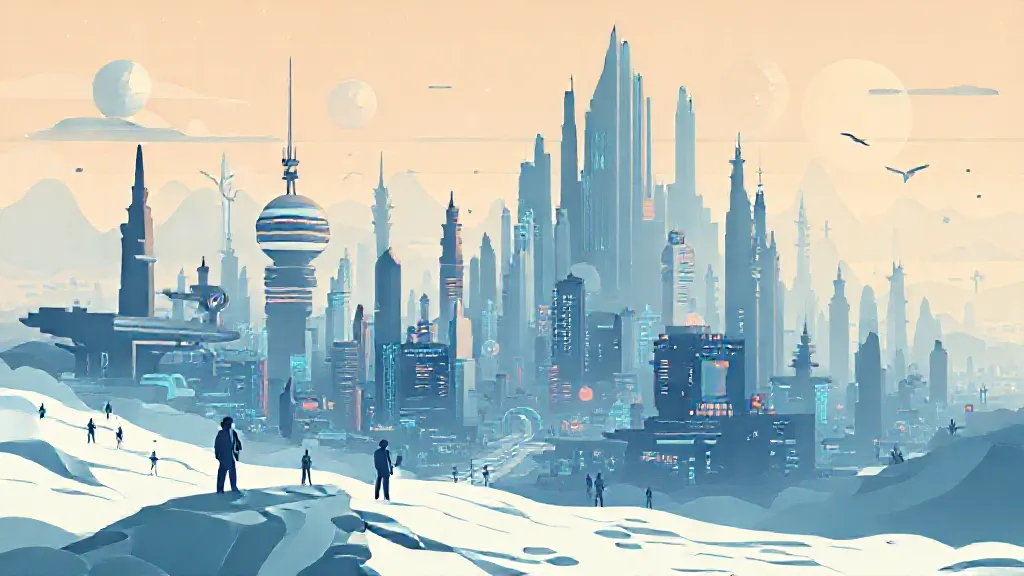Sci-fi, or science fiction, has long been a genre that not only entertains but also provokes thought about the human condition. From its earliest days, sci-fi has served as a lens through which we can examine our values, fears, and aspirations. This article delves into the myriad ways in which sci-fi explores the human experience, showcasing how this genre reflects and shapes our understanding of what it means to be human.
The Origins of Sci-Fi and Its Human Themes
The roots of science fiction can be traced back to ancient myths and stories that pondered the nature of existence. Works such as Mary Shelley’s "Frankenstein" and H.G.
Wells’ "The Time Machine" introduced themes of creation, morality, and the consequences of human ambition. These early narratives set the stage for later explorations of identity, technology, and society. They compel readers to confront uncomfortable truths about humanity, such as ethical dilemmas surrounding scientific progress and the potential for self-destruction.
Technological Advancements and Human Identity
As technology has advanced, so too has the complexity of the human experience in sci-fi narratives. Films like "Blade Runner" and series like "Black Mirror" examine the implications of artificial intelligence and virtual realities on our understanding of identity. These stories challenge the notion of what it means to be human in a world where machines can mimic emotions and consciousness.
The existential questions raised in these narratives force us to consider the essence of humanity and whether our experiences are defined by our biology or our consciousness.
Societal Reflections Through Dystopian Futures
Dystopian sci-fi often serves as a cautionary tale, reflecting societal fears and issues. Works like "The Handmaid's Tale" and "1984" explore themes of oppression, surveillance, and loss of individuality.
These narratives resonate with contemporary audiences, as they mirror real-world issues such as authoritarianism, gender inequality, and the erosion of personal freedoms. By exaggerating these societal concerns, sci-fi provides a platform for critical reflection and discussion about the direction our world is heading.
Exploring Relationships in a Sci-Fi Context
Sci-fi also delves into the complexities of human relationships, often set against extraordinary backdrops.
Stories like "Her" and "Arrival" highlight the intricacies of love, communication, and connection in an increasingly alienating world. These narratives prompt us to consider how technology influences our interactions and the nature of our emotional bonds. By placing these themes in sci-fi contexts, creators can explore the depth of human emotions while also questioning the impact of technological advancements on our intimate connections.
The Role of Ethics in Sci-Fi Narratives
Ethical dilemmas are a cornerstone of many sci-fi stories, pushing characters to make difficult choices that reflect broader societal morals. In "The Matrix," for example, the characters grapple with the implications of choice and reality, forcing viewers to question their own beliefs about freedom and control. Similarly, "Ex Machina" raises ethical questions surrounding AI and the responsibilities of creators towards their creations.
These narratives not only entertain but also engage audiences in critical thinking about morality in the face of rapid technological change.
Cultural Commentary Through Sci-Fi
Sci-fi serves as a powerful tool for cultural commentary, allowing creators to explore and critique societal norms and values. Works such as "Star Trek" have pioneered discussions around diversity, inclusion, and cooperation among different species and cultures.
By presenting a future that embraces differences, sci-fi inspires hope for a more equitable society. This cultural exploration encourages audiences to reflect on their own prejudices and the potential for a more unified world.
The Future of Humanity Through Sci-Fi Lenses
As we look to the future, sci-fi continues to evolve, reflecting our changing perceptions of humanity and our place in the universe.
With emerging technologies like virtual reality and genetic engineering, the narratives we create will likely delve even deeper into what it means to be human. The genre will remain a critical space for exploring the ethical, emotional, and philosophical questions that arise as we navigate an increasingly complex world.
Conclusion: Sci-Fi as a Catalyst for Reflection
In conclusion, science fiction is more than just a genre of entertainment; it is a vital exploration of the human experience.
By examining our fears, aspirations, and ethical dilemmas, sci-fi serves as a mirror reflecting the complexities of humanity. As we continue to create and consume these narratives, we are invited to reflect on our own lives and the world around us, making sci-fi an essential part of our cultural discourse.
